Intersection of AI and Quantum Computing: The future of computational power.
Nov 6, 2024
9 min Read
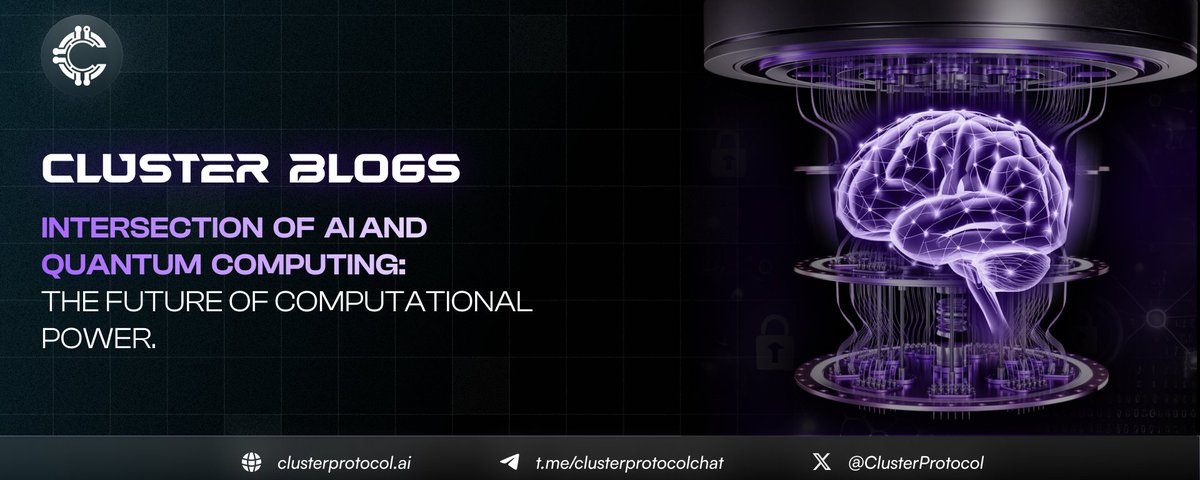
AI and quantum computing: A powerful duo

Imagine two incredibly smart and capable individuals working together. One is a brilliant problem-solver, able to learn from vast amounts of information and make complex decisions. The other is a supercomputer, capable of performing mind-boggling calculations in a fraction of a second. When these two forces join together, the possibilities are endless.
That's essentially what happens when we combine artificial intelligence (AI) and quantum computing. AI is already changing the world, from self-driving cars to personalized medicine. Quantum computing, on the other hand, offers a revolutionary new way of processing information, with the potential to solve problems that are currently unsolvable.
When we combine AI and quantum computing, we can create powerful new tools that can tackle some of the world's most challenging problems. For example, we could use quantum computing to develop new drugs faster and more efficiently, or to create more accurate climate models. We could also use AI and quantum computing to develop new materials with incredible properties, or to create more secure and efficient communication systems.
The possibilities are truly limitless, and the future of AI and quantum computing is incredibly exciting.
Let’s begin with the basics: Quantum Compute
Imagine a computer that can solve problems in a fraction of the time it takes a traditional computer. That's the power of quantum computing. While it might sound like something from a DC movie that Tony Stark invented, quantum computing is a real technology that is rapidly advancing.
What is Quantum computing?
Quantum computing is a paradigm shift in computing that uses the principles of quantum mechanics to perform calculations exponentially faster than classical computers.
Unlike traditional computers which use binary digits i.e. 0 and 1 , to represent information, Quantum computers use quantum bits or qubits. This allows Quantum computers to process multiple tasks or computations parallelly, highly increasing their computational power.
Qubits and Superposition
Qubits are the fundamental units of quantum information, analogous to classical bits. However, unlike classical bits, which can only be in one of two states (0 or 1), qubits can exist in a superposition of both states simultaneously. This property allows quantum computers to compute multiple functions parllely, exponentially increasing their computational power.
How Quantum computation is better than traditional computation
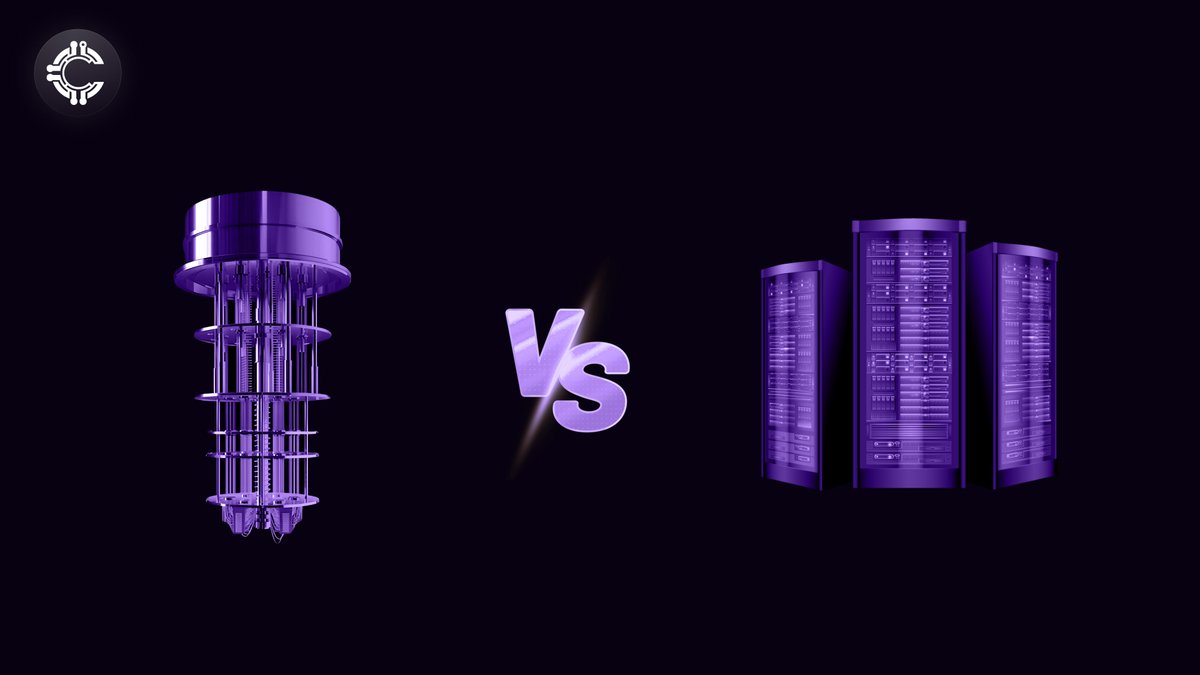
1. Exponential Speedup for Certain Problems:
Quantum computers can solve certain problems exponentially faster than classical computers. This is because they can explore multiple possibilities simultaneously due to the phenomenon of superposition. This advantage is particularly significant for problems involving optimization, simulation, and factoring large numbers.
2. Enhanced Machine Learning:
Quantum computing can accelerate the training and inference processes of machine learning models. This can lead to improved accuracy and performance, especially for tasks involving complex data patterns.
3. Advanced Materials Science:
Quantum computers can simulate the behavior of complex molecules and materials at a quantum level. This can enable the discovery of new materials with tailored properties for applications such as energy storage, electronics, and medicine.
4. Enhanced Cryptography:
While quantum computing poses a threat to classical cryptographic algorithms, it also offers the potential for developing new quantum-resistant cryptographic algorithms that can secure our digital infrastructure in the face of future quantum threats.
AI's Appetite
AI development is fueled by two key ingredients:
1. Data: Like a gourmet chef, AI needs a diverse and plentiful supply of data to learn and refine its skills.
2. Computational Power: AI's appetite for knowledge requires powerful computers to process and analyze vast amounts of information.
We've discussed the importance of AI training data in our previous blog. However, training AI models is a computationally intensive process. It requires powerful hardware with much computational power to process and analyze large datasets efficiently. As AI technology continues to advance and we aim to incorporate more private data into training, the demand for computational power will grow exponentially. This means that we'll need even more powerful computers to train AI models effectively in the future.
To give you an idea of the scale we're talking about, Nvidia, one of the world's most valuable companies, is the biggest producer of GPUs. These GPUs are essential for training AI models and are used in other fields like cryptography.
Quantum AI: Utilizing the computational potential
While traditional computers and GPUs have been instrumental in AI development, they face inherent limitations when dealing with the massive computational demands of modern AI models:
Scaling Challenges: As AI models become more complex and datasets grow larger, traditional computers and GPUs struggle to keep up with the increasing computational requirements.
Exponential Growth: The demand for computational power isn't simply increasing linearly; it's growing exponentially. This means that the computational resources needed to train future AI models will far exceed the capabilities of current hardware.
Energy Consumption: Traditional computing and GPU-based systems consume significant amounts of energy, making them unsustainable for large-scale AI training operations.
Quantum computing, with its potential to solve complex problems exponentially faster than traditional computers, offers a promising avenue for overcoming these challenges.
Intersection of AI and Quantum Computing
While quantum computing offers a significant boost in computational power, it's not just about meeting the demand. Quantum AI has the potential to revolutionize AI.
Quantum machine learning
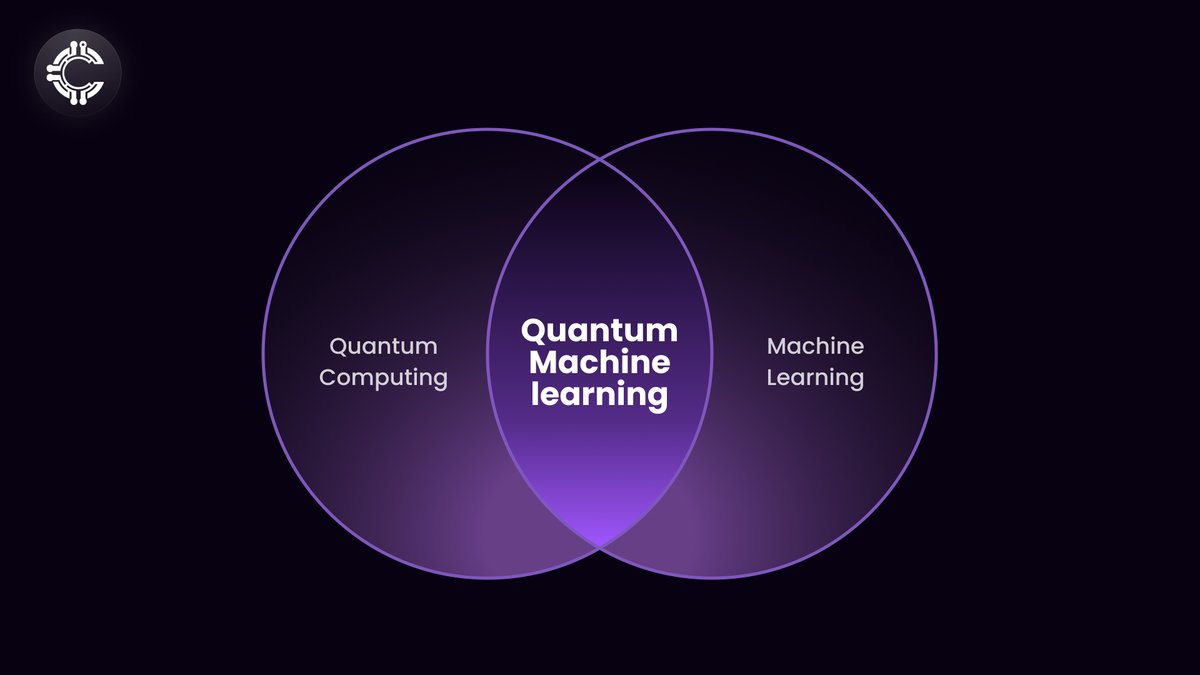
Quantum machine learning (QML) is a rapidly evolving field that combines the power of quantum computing with machine learning. By leveraging quantum algorithms and hardware, QML can enhance the performance of traditional machine-learning models.
QML has the potential to accelerate various machine learning tasks, such as feature selection, dimensionality reduction, and kernel methods. Quantum algorithms can efficiently identify important features, reduce the complexity of datasets, and capture complex patterns in data.
Furthermore, QML can be used to optimize the training process of classical machine learning models, leading to faster convergence and improved accuracy. By exploring new techniques and applications, researchers are pushing the boundaries of what is possible in the field of quantum machine learning.
Quantum Neural networks
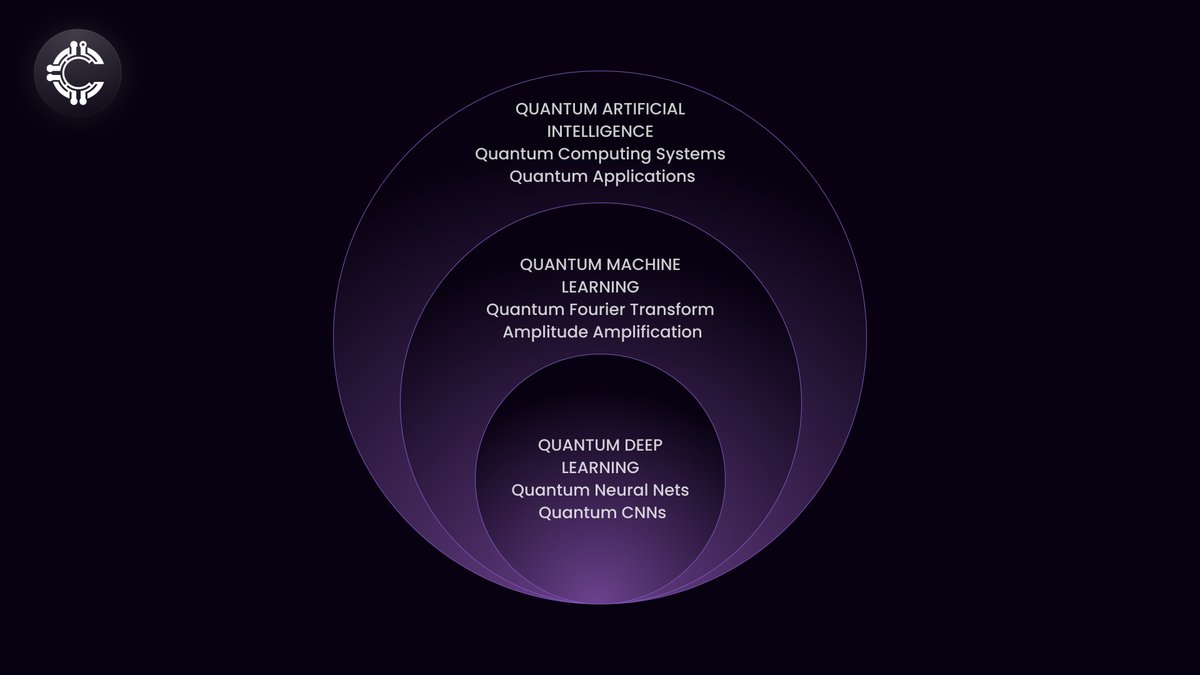
Imagine a neural network that can explore countless possibilities simultaneously, learning from data at a speed far surpassing classical computers. Quantum neural networks (QNNs) promise to do just that.
By harnessing the power of quantum mechanics, QNNs can leverage phenomena like quantum parallelism and entanglement to perform calculations exponentially faster than their classical counterparts. This opens up new possibilities in fields such as quantum chemistry, optimization, and pattern recognition.
Researchers are actively working on developing novel QNN architectures, training methods, and applications. With continued advancements in quantum computing hardware and software, QNNs could soon become a transformative force in the world of artificial intelligence.
Enhanced security
Quantum AI offers the potential to significantly enhance data security. By leveraging the unique properties of quantum mechanics, quantum algorithms can develop encryption methods that are virtually unbreakable to classical computers.
For instance, quantum key distribution (QKD) can generate secure cryptographic keys that are impossible to intercept or eavesdrop on. Additionally, quantum AI can be used to detect and mitigate cyber threats more effectively, such as identifying and neutralizing advanced persistent threats (APTs) and quantum-resistant attacks.
Quantum Key Distribution (QKD) is a method of securely exchanging cryptographic keys using the principles of quantum mechanics. It ensures that any attempt to intercept or eavesdrop on the key distribution process will be detected, making it virtually impossible for third parties to gain unauthorized access to encrypted data.
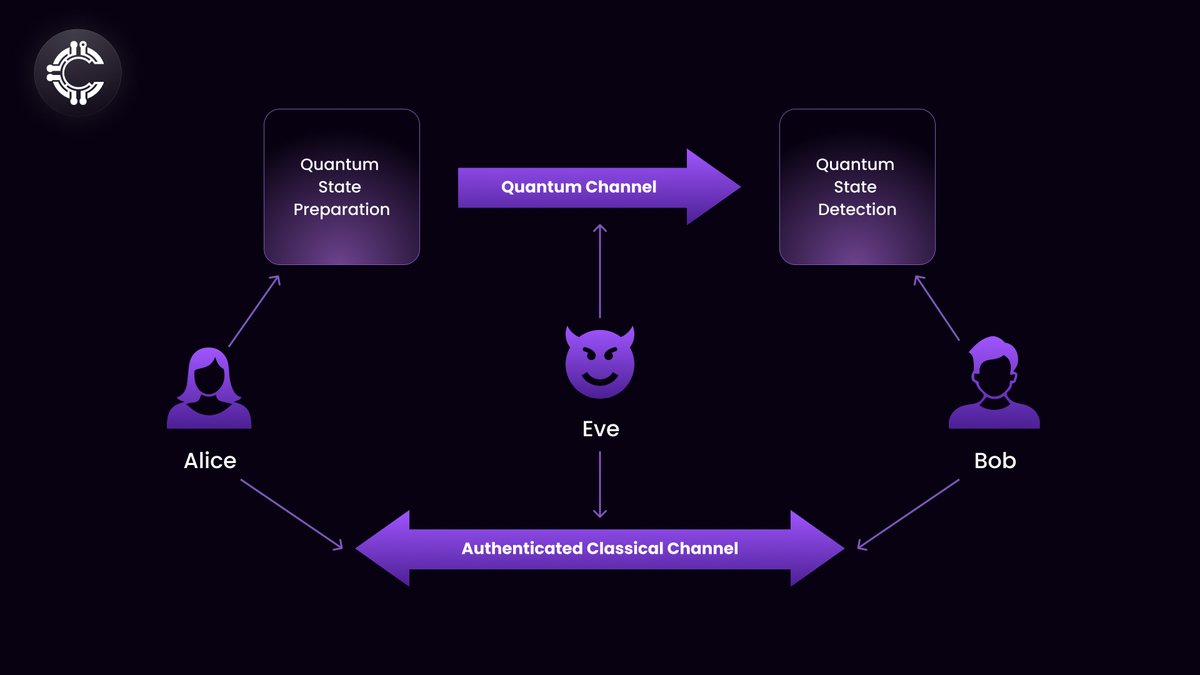
AI algorithms
Quantum algorithms, leveraging the unique properties of quantum mechanics, offer significant computational advantages over classical algorithms.
Shor's algorithm, for instance, can factor large integers exponentially faster than classical algorithms, posing a threat to classical cryptography. Grover's algorithm, on the other hand, provides quadratic speedup for unstructured search problems, which has implications for database search and optimization tasks.
These are just a few examples of how quantum computing can change computation in various domains. Other potential applications include quantum simulation, which could accelerate the development of new materials and drugs, and quantum optimization, which could help solve complex optimization problems in fields like logistics and finance.
Quantum AI: Beyond the Limits of Traditional Computing
Let's discuss various use cases of Quantum AI and how they are not possible with traditional computing.
1. Drug Discovery and Development:
- Simulating complex molecular interactions: Quantum AI can simulate the behavior of molecules at a quantum level, accelerating the discovery of new drugs and materials.
- Optimizing drug design: Quantum algorithms can optimize drug structures for maximum efficacy and minimize side effects.
2. Materials Science and Engineering:
- Designing novel materials: Quantum AI can simulate the properties of materials at a quantum level, leading to the development of new materials with enhanced properties.
- Optimizing material synthesis: Quantum algorithms can optimize the synthesis process of materials, reducing costs and improving efficiency.
3. Financial Modeling and Risk Analysis:
- Optimizing investment portfolios: Quantum AI can optimize investment portfolios to maximize returns while minimizing risk.
- Simulating complex financial markets: Quantum algorithms can simulate complex financial markets, providing valuable insights for risk management and decision-making.
4. Climate Modeling and Simulation:
- Simulating complex climate systems: Quantum AI can simulate complex climate systems, helping us understand climate change and develop mitigation strategies.
- Optimizing renewable energy systems: Quantum algorithms can optimize the design and operation of renewable energy systems, such as solar and wind power.
The challenges of Quantum AI
Though the tech offers great potential ahead it's not all smiles and sunshine.
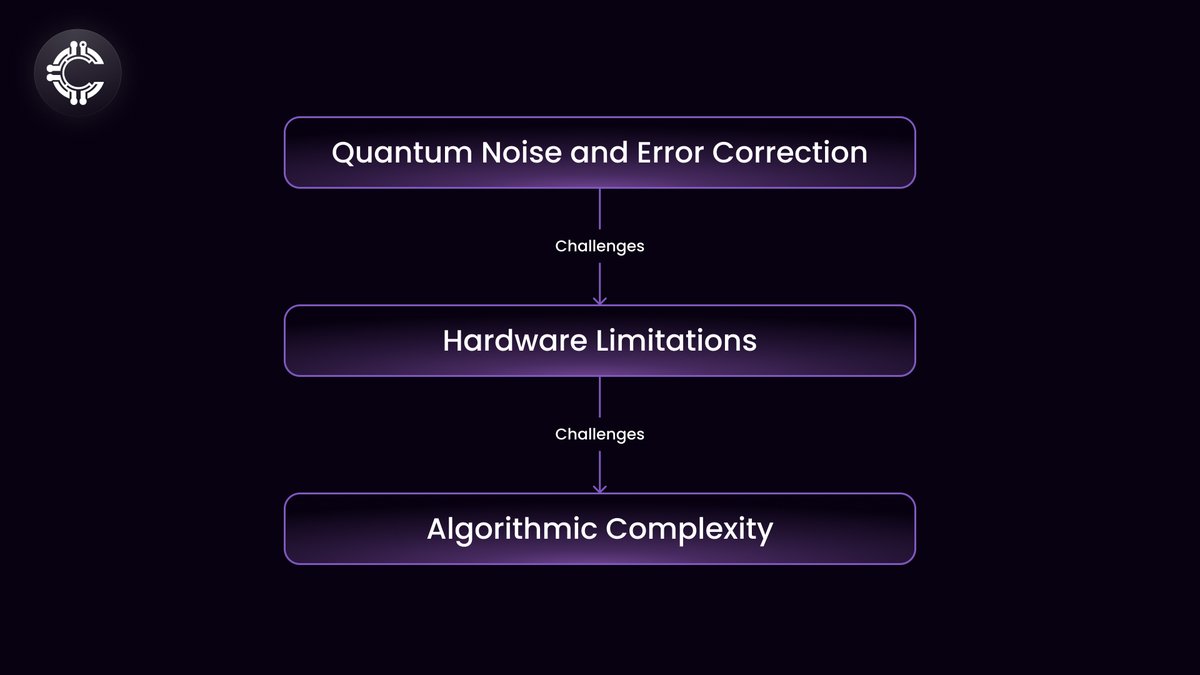
One of the primary challenges facing quantum AI is the development of scalable quantum hardware. Building large-scale quantum computers with high qubit counts and low error rates remains a significant hurdle. Additionally, maintaining the coherence of quantum states is challenging, as external factors can introduce noise and errors.
Another key challenge lies in the development of efficient quantum algorithms for AI tasks. Designing quantum algorithms that can leverage the unique properties of quantum mechanics to solve problems more efficiently than classical algorithms requires deep expertise in both quantum mechanics and computer science. Moreover, developing robust error correction techniques to mitigate the effects of noise and errors in quantum systems is crucial for reliable quantum computation.
Integrating quantum computing with classical infrastructure and algorithms poses compatibility and interoperability challenges. Quantum AI systems must be able to seamlessly interact with existing classical computing systems, and hybrid quantum-classical algorithms may be necessary for many real-world applications.
The integration of AI and Quantum computing is expected to remain within the domain of well-funded institutions due to the need for scarce human talent, specialized hardware, and sophisticated algorithms.
Conclusion
The fusion of artificial intelligence and quantum computing is a groundbreaking development with the potential to revolutionize various fields. By harnessing the power of quantum mechanics, we can tackle complex problems that were previously unsolvable. This breakthrough could lead to significant advancements in areas such as drug discovery, materials science, and climate modeling. While challenges remain, the ongoing progress in quantum AI and the growing interest from both the public and private sectors suggest a bright future for this transformative technology.
About Cluster Protocol
Cluster Protocol is a decentralized infrastructure for AI that enables anyone to build, train, deploy and monetize AI models within a few clicks. Our mission is to democratize AI by making it accessible, affordable, and user-friendly for developers, businesses, and individuals alike. We are dedicated to enhancing AI model training and execution across distributed networks. It employs advanced techniques such as fully homomorphic encryption and federated learning to safeguard data privacy and promote secure data localization.
Cluster Protocol also supports decentralized datasets and collaborative model training environments, which reduce the barriers to AI development and democratize access to computational resources. We believe in the power of templatization to streamline AI development.
Cluster Protocol offers a wide range of pre-built AI templates, allowing users to quickly create and customize AI solutions for their specific needs. Our intuitive infrastructure empowers users to create AI-powered applications without requiring deep technical expertise.
Cluster Protocol provides the necessary infrastructure for creating intelligent agentic workflows that can autonomously perform actions based on predefined rules and real-time data. Additionally, individuals can leverage our platform to automate their daily tasks, saving time and effort.
🌐 Cluster Protocol’s Official Links:
